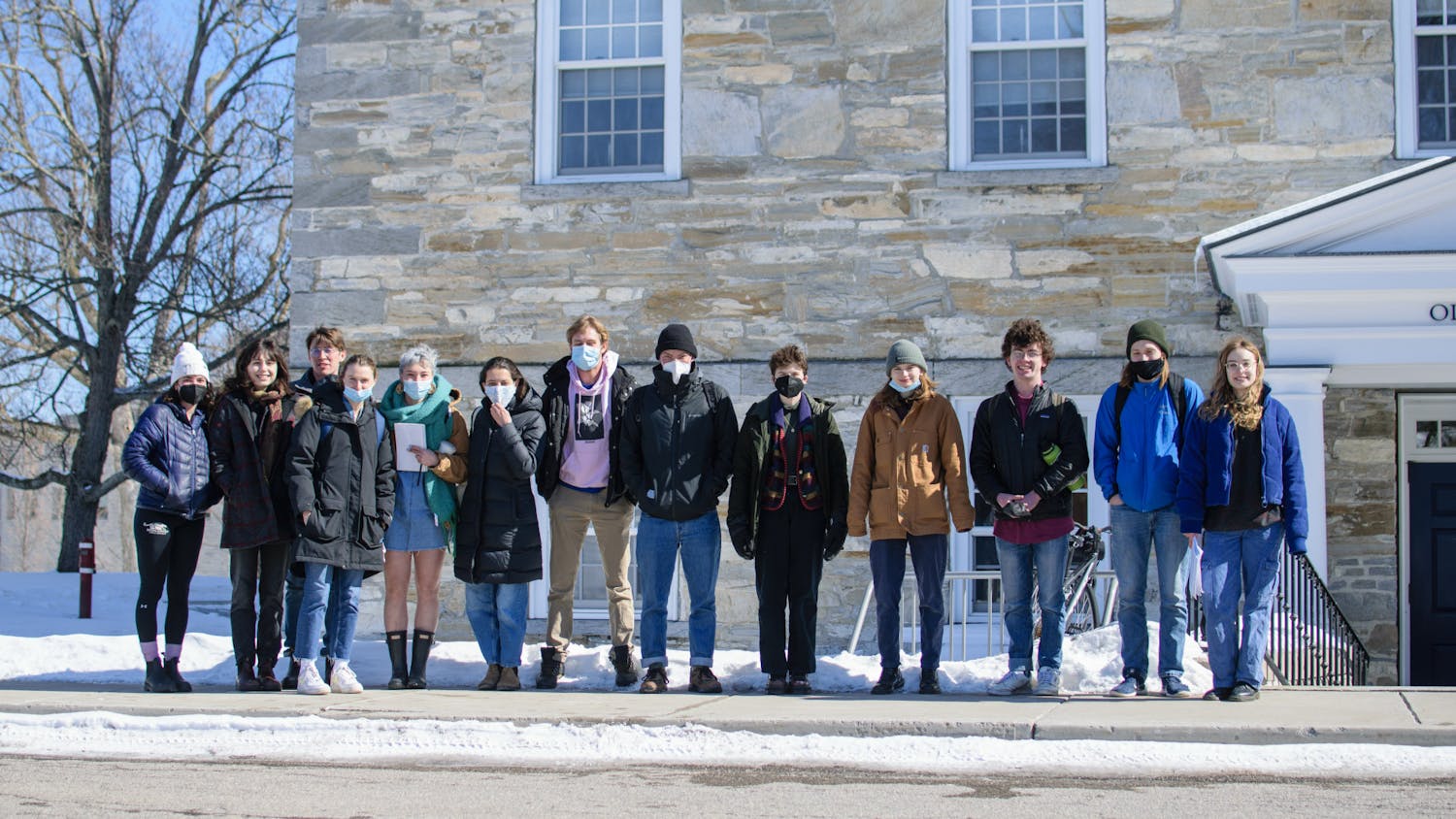Last Tuesday, Middlebury Associate Professor of Sociology Jamie McCallum won a contentious local election, definitively earning his seat — with 1,389 votes against his opponent’s 845 — on the Addison Central School District (ASCD) board for the town of Weybridge.
On voting day, residents in the ASCD towns — Bridport, Cornwall, Middlebury, Ripton, Salisbury, Shoreham and Weybridge — took to the polls to enact change on the board, which oversees pre K-12 education for children in the seven member towns.
McCallum ran a joint campaign with Joanna Doria, who has a breadth of experience as a schools activist in Ripton.
Voters endorsed challengers Doria and McCallum over incumbent board members Amy McGlashan and Mary Cullinane. Cullinane, McCallum’s next door neighbor, was previously the board Chair and had helped develop a plan to close rural schools.
What McCallum hopes to accomplish on the school board is closely linked to his personal and professional background.
McCallum is an author, teacher and activist, focusing on labor and work issues around the world. His work has won scholarly awards and has appeared in publications such as The Washington Post. McCallum is also an educator, having worked as a teacher in New York and in the San Quentin State Prison before making his way to Middlebury.
While he usually teaches multiple classes during the academic year, McCallum is currently on sabbatical while he works on his latest and soon to be released book, Essential: How the Pandemic Transformed the Long Fight for Worker Justice, and trains to become a certified volunteer firefighter. He lives in Weybridge with his partner, Erin Davis — who occasionally teaches courses in podcasting and audio storytelling at Middlebury — and their two children.
As a father, teacher and author, running for local office was never exactly a part of McCallum’s plan. However, as he grew increasingly frustrated with the current school board, McCallum took it upon himself to effect change.
“We needed someone on the board who was going to help it be more accountable and responsible to the communities that the board represents… and a lot of people asked me to do it,” McCallum told The Campus.
When people caught wind of McCallum’s campaign, some assumed he was incentivized by the fact that his son attends Weybridge Elementary School. While that is certainly relevant to his story, McCallum noted that his motivations primarily lie in resolving “the huge schism between rural schools and Middlebury schools that has been driven by policies that, to some extent, the current board has pursued.”
“For the last few years, I've been sitting here watching people talk about closing rural schools without exploring every alternative first,” McCallum added. “Serving on the school board is not a glamorous job, but I hope to make an important contribution.”
McCallum added that his campaign was not solely an effort to save local schools. He also sought to make the board more democratic, transparent and receptive to community input.
While some Middlebury faculty members came out in support of Professor McCallum, he was also met with strong resistance.
Caitlyn Myers of Middlebury’s Economics department, for example, wrote a piece on the Middlebury Front Porch Forum arguing that rural schools advocates need to focus on the hard data. She wrote, “It’s hard not to empathize with the fear and sorrow surrounding the planned or potential closures [of] our neighbors’ and friends’ elementary schools, or to feel swayed by emotional appeals to support a ‘brave little town’. But… we must face the reconfirmed financial realities of providing an excellent education to every child in our communities.”
Myers ended by endorsing the incumbent candidates.
“The existing hard data has been misinterpreted,” McCallum said. “Middlebury residents do not subsidize rural schools.” McCallum also added that “emotion is data… the things people feel and hope for are important. If you don't listen to those people, if you don't listen to the anger, you're missing the story.”
According to McCallum, while Middlebury faculty were engaged in the discourse of the election, many students remain unaware of local elections such as this one.
“It's easy for students to think of Middlebury or Addison County as essentially the bagel shop, the Co-Op and Haymaker,” McCallum noted. “But as soon as you get three miles out of town to Weybridge or out towards the Snow Bowl, things get pretty different. Expanding your circle of interest into the surrounding areas is important. That’s what it means to be genuinely engaged.”

Jones is majoring in Sociology and Anthropology.
While this is her first year writing for The Campus, Jones brings extensive writing experience from her work as a tutor at the Center for Teaching, Learning, and Research. She has produced a year-long independent project on grading models and academic wellbeing at Middlebury and also works as the marketing manager for an outdoor apparel startup, SheFly Apparel.
In addition, Jones serves as a volunteer firefighter for the town’s fire department and is a member of the women's water polo team.




